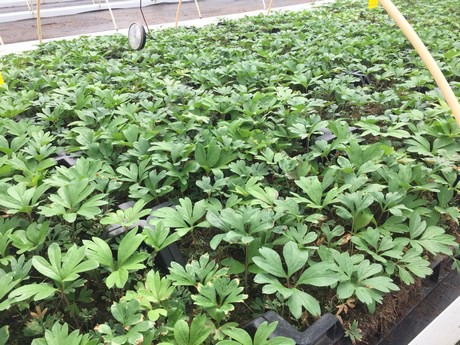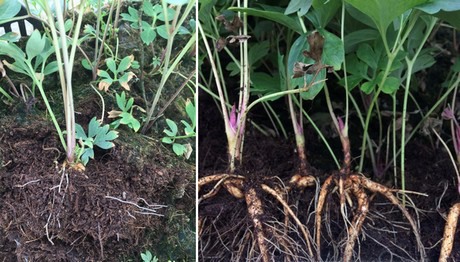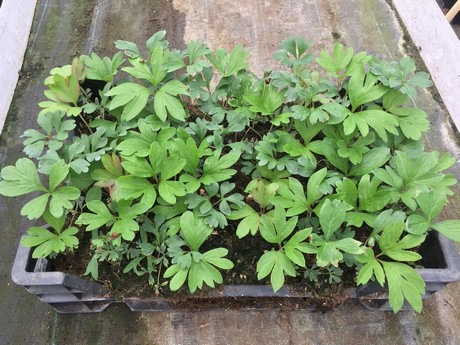The importance of clean and qualitatively strong production material is increasing because more and more diseases and pests are arising. The demands that other countries place on plant material from the Netherlands are also becoming stricter. One of the ways to respond to this is production from tissue culture.

Tissue culture is the propagation of crops in laboratories under sterile circumstances. The major benefit is that the material is produced uniformly and free of viruses. A positive result of that, is that the amount of pesticides used is smaller later in the production, which is good both ecologically and socially. Moreover, for some crops that can’t be propagated from seeds or for which the process of propagation is (incredibly) slow, it can be a way to speed up the entire process.
This introduction might be necessary to explain the great importance of two recent pieces of news, in which IribovSBW announced to have sped up the propagation process of tulip bulbs and peonies. The propagation process of the tulip bulbs could be reduced from 20 years to only six or seven years thanks to a new technology, because one bulb wouldn’t produce about three, but about 1,000 new bulbs. The peony on the other hand, didn’t have much benefit from tissue culture due to a complicated combination of factors in propagation until recently. However, IbirovSBW also managed to find a solution for this, so that the propagation factor is now much larger and could become commercially interesting.

“No one else in the world has this technology that enables this peony propagation,” says Kees Veldhuijzen, commercial manager of IbirovSBW. IbirovSBW has seen its clientele expanding thanks to the above-mentioned benefits of tissue culture, these two breakthroughs and the market, which always wants to be quicker, more and better after all. “Tissue culture doesn’t solve everything, and there will always be risks, particularly once the product is in the greenhouse or the field. But if you can propagate on a large scale and in large numbers 100% cleanly, as we do now with peonies, I don’t think you could be making a better start.”

The market appears to be agreeing with him, if only because of the growth experienced by the company. “We’re currently expanding our capacity in Macedonia to meet growing demand for tissue culture production. We’re also working on getting a position on the local market in Ghana, in the field of supplying healthy starting material for fruit and other plantation crops. Besides, we’re expanding our facilities here in the Netherlands, and new, compartmentalized greenhouses are being built, in which we can carry out specific assignments from our customers.”
About 350 people are employed by IbirovSBW. The main office can be found in the Netherlands, where the planning and sales, research and all tissue culture is started. Production mostly takes place in Macedonia, and to a lesser extent in Ghana. Besides tissue culture, the company offers a range of other laboratory technologies. For example, they’re working on diagnostics, a PCR virus test, flow cytometry, cellular biological technologies for improvement of seeds and genotyping and brand development. The company is unique in that it possesses the most advanced technologies and knowledge in the field of seed improvement, but doesn’t have its own genetics or improvement. “We don’t sell plants but our services, our capacity and our knowledge. It’s therefore quite possible that companies that compete with each other on the market, are standing side by side on our shelves. In that we are indeed unique.”
For more information: IribovSBW
IribovSBW
Middenweg 591b
1704 BH Heerhugowaard, the Netherlands
T: +31 72 57 42 427
F: +31 72 57 10 756
E: [email protected]
www.iribov.com
